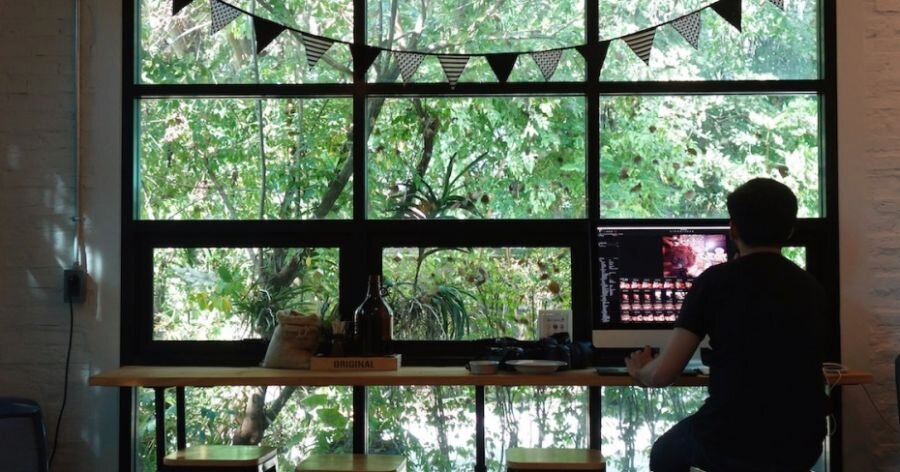Making it as a freelancer: tips from someone who’s done it for 15 years
By: Dominic Licorish on December 12, 2017
“You interviewed an artist, you were never going to get what you wanted.”
That’s what Josh Gorle told me as I walked away after sitting down to talk with him about what advice he has for self-employed creative professionals.
Among many other things, Josh is a 39-year-old art director, animator, illustrator, sculptor, set designer, and director. But if you ask him what he does, he’ll simply tell you he’s an artist. He’s supported himself using his creative mind and talent for designing and building things for the past 15 years.
For creative freelancers who are still new to the game (like myself), what he’s done seems like something of a miracle. The reality is most, if not all, people who begin a career in the arts struggle to grow and maintain a career. The stereotype of the starving artist is, after all, not too far from the truth.
By interviewing Josh, I originally meant to get practical tips on things like how to handle your accounting, take advantage of tax breaks, and any other insider tips he’s learned about money that’s helped him during his career. Instead, we had a much more general discussion about what he’s learned about working as a career creative. Somewhere in the middle of our discussion I realized that even though I didn’t get what I initially wanted, what I got instead was the advice I personally needed.
So here’s what Josh had to teach me about having a career as a full-time freelancer. It helped me, and hopefully, it helps you.
“Throw money at your problems”
Being self-employed opens up a whole new world of financial challenges, especially for young people, who often enter adulthood with gaps in their financial knowledge. When I asked Josh about how he handles the accounting side of things, he told me to “throw money at your problems until they go away.” In other words, don’t try to do all your taxes and financial planning yourself — hire a professional to do it for you.
It’s the best way to learn all of the unique financial options available to you now that you’re working for yourself. Hiring a professional may cost you some money, but it will help you get used to managing your money as both a business and an individual.
Value yourself
One of the first things every freelancer needs to do is also one of the most important financial decisions they’ll have to make: how much will you charge for your services? Setting an appropriate rate is the first step to making a living as a freelancer.
It’s easy, especially for young people, to be intimidated when negotiating wages with employers. But it’s important to get over the fear that you might lose work because you asked for too much money. That being said, you can’t ignore the standards of your industry. So start asking questions. Talk to your peers and mentors about how they decided on their rate. Another thing you have to keep in mind is your needs as an individual. How realistically can you support yourself with the amount of work you’re doing at the rate you’re setting?
Sometimes it’s hard to know what to do if the only work you’re finding isn’t paying you enough to live off of. On one hand it’s important to stand your ground and value your time and unique skills, and on the other you need to support yourself. There will certainly be times where you’ll have to compromise or just straight up accept a rate you don’t like just to have something in your bank account, but that’s just reality. It’s still important to know what your service is worth.
“I used to think, ‘This is nothing, anybody can do this,’” Josh told me about when he first started charging people for his work. “Then [a while later] it was like, ‘No, wait a minute. Not anybody can do this.”
Network for real
If you’re starting off with no client base, it’s going to be tough to get your business off the ground. So how do you build a strong network of clients and collaborators that can keep you working consistently? The answer is simple: network.
But you have to network the right way, and for creatives like Josh that way isn’t to go to networking events. Depending on what your business is, that might be the right pick for you, but for creative people, networking can often just look like your regular life.
Making friends and spending time with peers in the same field as you can often lead to work through collaborations or even just recommendations. After all, if you had too much work on your plate but know someone who could handle it, wouldn’t you think about recommending a friend for the job?
In film school, one of my teachers told me that if you have five good friends in the industry, you won’t have to worry about making money. While that may be a bit of an exaggeration, his message rings true even in other industries. Keep an eye out for the people that you not only think are talented but also get along with well.
And if you’re not sure where to find your peers, maybe the answer is to just go to where they are and ask to help them. Josh told me he once got a job by walking into a studio and asking to volunteer there. He busted his ass and after a short while, was able to get hired. Now this may seem slightly contradictory after saying you need to value yourself, but volunteering or doing internships can be one of the best ways to network.
Of course, if you’re trying to put a roof over your head, you may not have the privilege of working for free or a low wage. It’s here where you have to think about what it means to value yourself, because you shouldn’t be working for free ( at least not for too long). Use an internship or volunteer opportunity to grow your network and find clients. Having experience should make it easier to charge a proper rate as well.
Show off your process
Remember in grade school algebra when teachers would give partial marks for showing how you solved equations? Well, it turns out life is kind of like that. Regardless of what you do, most employers are not going to be fully aware of how complicated the work you do is. This is why showing some of your process can really help them to understand the skill it takes to do your work, and why paying you is worth it. It also allows them to provide input during the creation phase so that when you’re done, they’re less likely to send it back feeling like something needs tweaking.
For Josh, showing his process can prevent him from wasting his own money buying materials for something he might have to redo. It also keeps clients happy, which keeps them coming back. Happy clients = more money. More money = a happy you.
Keep something for yourself
“If you don’t keep something just for you, you get jaded.” - Josh Gorle
This is probably more for creatives than anyone else, but it’s one of the most important lessons to remember. No matter how much work you’re getting, how much money you want or need to make, remember to turn it off sometimes and work on your own thing once in awhile.Seriously.
Spending all of your energy on other people’s projects is emotionally draining and stressful. For creative people, it can be so unsatisfying that their work starts to depress them.
I’ve personally experienced this and even if it’s not directly related to finances, it will soon start to affect them, as a lack of motivation tends to show itself negatively in your work. That can lead to missed deadlines, subpar execution, and all sorts of other mishaps that can lead to lost opportunities and wasted money.
Beyond the negative effects of being jaded, working on personal projects also helps you grow professionally. “It’s the personal projects that keep you growing,” says Josh. “Especially if they aren’t about money, because the stuff that got you noticed in the first place probably wasn’t about money. The first jobs you got probably weren’t about money, they were about heart.”
Final thoughts
Josh constantly reminds himself to take his own advice, and that’s one of his favourite tips. Most of the time in life, we readily give advice to those who ask it of us without really thinking about it. But do we follow the same advice we give?
Success doesn’t look the same for everyone. At nearly 40 years old, Josh doesn’t own a car, or his own house. His work hasn’t garnered him national fame. He’s not getting paid millions of dollars per piece. But he’s got food, a place to sleep (in an exciting city, might I add), and enough cash to spend on enjoying his life.
Most importantly, he's doing what he loves. And that's a lot more than a lot of people can say.


